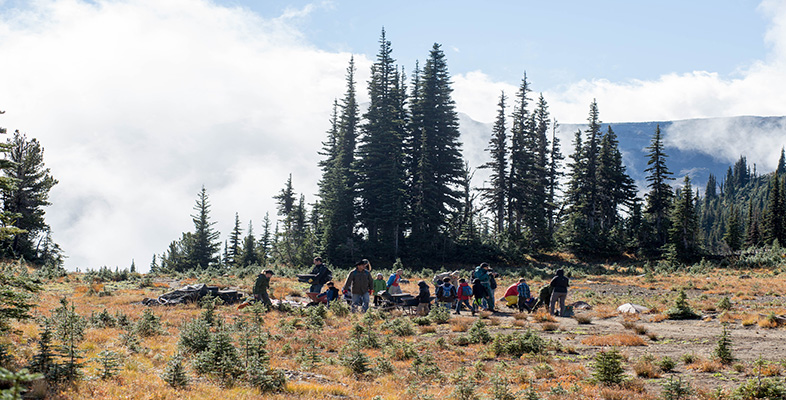3 What would suit me?
You should now have built up a realistic picture about what you want to achieve and what you have to offer and be able to match up all of these against some possible activities.
Here are some different ways to get you started:
Have another look at some of the statements in Section 1.3. These are just to get you thinking but you might identify with some of the volunteers.
There are excellent websites to help you match your interests, experience and personal circumstances to actual vacancies, so you might find it helpful to try inserting your personal specifications into any of the following websites using their drop-down menus.
There are other suggested sources of volunteering oportunities in this unit's references section.
1) Do-it
You can insert preferred geographical area and availability, and select from drop-down menus of your type of interest and the kind of activity you would like to do, e.g. befriending, buddying, driving, legal work, artistic, etc.
2) Volunteering England
Volunteer Development Scotland
Volunteering Ireland
Volunteering Wales
The sites list the main categories of voluntary work, such as animal welfare, arts and heritage, community development and campaigning, and health and social care (including sections relating to young people, elderly, disabled, etc.). There are also subcategories, e.g. for campaign volunteering, these include discrimination/human and civil rights, environment and conservation, and political parties. The Volunteering England site also contains volunteer blogs.
3) Directgov
Search volunteer opportunities, mainly community-based. The drop-down lists of activities range from finance to entertainment and lists of interests from heritage to homeless and housing.
4) Charities
Websites of many charities also have drop-down lists of skills/interests, commitment level, location, and preferred role type, e.g. Sue Ryder Care and the RSPCA. Other charities such as CSV provide a range of activities to select from, for example supporting an at risk family or helping at a local school.
Most are very informative and user-friendly. They also widen your horizons about what type of work you can do. Many people never think beyond the fundraising aspect, but at the RSPCA, for example, volunteers can walk dogs at the local shelter, home-visit prospective adopters or do home-based computer work (updating the web or databases, etc).
5) Other organisations
Register your skills directly on an organisation's database and they’ll select appropriate activities for you. For example, the Rotary volunteers database includes individuals with a broad range of skills such as radio operators, solicitors, beekeepers, natural resource managers and plumbers.
There are opportunities to volunteer both locally and internationally. The Rotary Foundation has 32,000 clubs in 200 countries with 1.2 million members. Their role is to ‘serve communities both at home and abroad’.
6) Volunteer centres
You can visit your local volunteer centre to chat about what you might like to do with one of the volunteer coordinators, who will know all the opportunities in your area.
7) Case studies
You can find these on most large charity websites and the websites given above. They give a real insight into the volunteer’s activities and achievements. The Open University’s Careers Advisory Service website includes John Pierre-Madigan's story, which mentions the value of volunteering.
